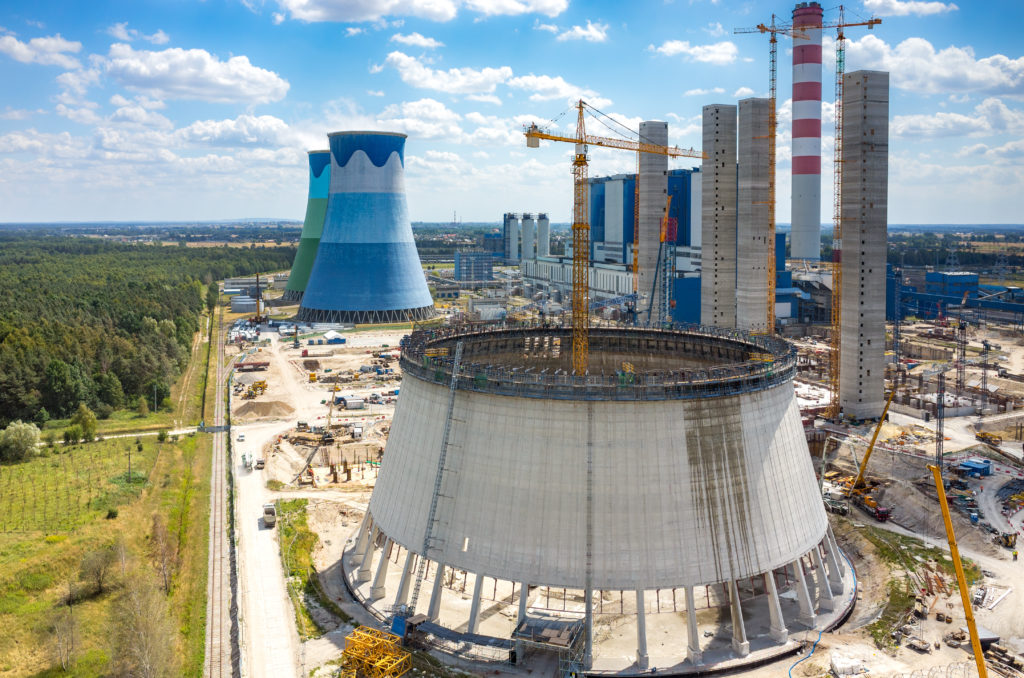Peabody falls as production issues, weather crimp coal sales
Bloomberg News | April 11, 2024

Peabody’s North Antelope Rochelle Mine (NARM). (Image courtesy of Peabody Energy)
Peabody Energy Corp. shares sunk to the lowest in seven months after the biggest US coal miner warned that first-quarter sales will be lower than expected due to production issues at mines in Australia and weak demand in the US.

Peabody expects to report revenue of $980 million for the quarter, according to a statement Thursday. Analysts had been expecting revenue of $1.03 billion for the period. Shares of the St. Louis-based company fell as much as 7.3% to its lowest since Sept. 11 before paring losses.
Shares traded at $22.68 as of 9:49 a.m. in New York, down 3.8%.
Warm winter weather and low natural gas prices ate into coal demand in the US as utilities continue to shift away from the dirtiest fossil fuel. Peabody also said its results were impacted by production issues at some mines in Australia that reduced output, and lower prices for some metallurgical coal.
“Our first quarter included some unforeseen production challenges that are now behind us,” Peabody chief executive officer Jim Grech said in the statement.
Coal may get a boost later this year. A government forecast released this week calls for hot summer temperatures that will boost residential electricity usage by almost 4%.
(By Will Wade)
Bloomberg News | April 11, 2024

Peabody’s North Antelope Rochelle Mine (NARM). (Image courtesy of Peabody Energy)
Peabody Energy Corp. shares sunk to the lowest in seven months after the biggest US coal miner warned that first-quarter sales will be lower than expected due to production issues at mines in Australia and weak demand in the US.

Peabody expects to report revenue of $980 million for the quarter, according to a statement Thursday. Analysts had been expecting revenue of $1.03 billion for the period. Shares of the St. Louis-based company fell as much as 7.3% to its lowest since Sept. 11 before paring losses.
Shares traded at $22.68 as of 9:49 a.m. in New York, down 3.8%.
Warm winter weather and low natural gas prices ate into coal demand in the US as utilities continue to shift away from the dirtiest fossil fuel. Peabody also said its results were impacted by production issues at some mines in Australia that reduced output, and lower prices for some metallurgical coal.
“Our first quarter included some unforeseen production challenges that are now behind us,” Peabody chief executive officer Jim Grech said in the statement.
Coal may get a boost later this year. A government forecast released this week calls for hot summer temperatures that will boost residential electricity usage by almost 4%.
(By Will Wade)
China state planner finalizes rule to set up coal production reserve system
Reuters | April 11, 2024 |

Mao Zedong statue.(Image courtesy of 猫猫的日记本 |Wikimedia Commons.)
China’s state planner on Friday finalized a rule to set up a domestic coal production reserve system by 2027, aimed at stabilizing thermal coal prices and supplies to power plants.

The rule, which was first issued in draft form by the National Development and Reform Commission (NDRC) in December, called for 300 million metric tons of “dispatchable” annual coal production by 2030, equivalent to about 6% of last year’s output.
China set a goal in 2021 to have coal reserves equivalent to 15% of annual output stocked at mines, ports, power plants and other designated storage areas.
The new system will build on that measure by ensuring that a certain amount of production capacity is ready to be mined when needed.
It will focus on mines that produce coal for electricity and heat generation – prices of which are closely monitored by authorities because of their connection to power prices and local livelihoods – rather than coking coal, which is used to make steel.
Coal mines that are part of the capacity reserve system must be able to dispatch output when authorities deem prices to have exceeded a “reasonable” range or when supplies are tight. These mines would also no longer be subject to local government requirements to sign medium- and long-term contracts with buyers.
Large scale, modern mines with good safety conditions in China’s top coal-producing regions of Shanxi, Inner Mongolia, Shaanxi and Xinjiang would be prioritised for inclusion into the coal reserve plan, according to the NDRC notice.
China is the world’s top coal consumer and producer, mining a record 4.66 billion tons last year. But the country has been concerned about energy security since a crippling domestic coal and power shortage in 2021 that prompted a probe into soaring coal prices.
Coal output is expected to stabilize this year as China ramps up renewable power and is likely to notch just 1% production growth, according to an industry group forecast.
(By Colleen Howe; Editing by Christopher Cushing and Jamie Freed)
Reuters | April 11, 2024 |

Mao Zedong statue.(Image courtesy of 猫猫的日记本 |Wikimedia Commons.)
China’s state planner on Friday finalized a rule to set up a domestic coal production reserve system by 2027, aimed at stabilizing thermal coal prices and supplies to power plants.

The rule, which was first issued in draft form by the National Development and Reform Commission (NDRC) in December, called for 300 million metric tons of “dispatchable” annual coal production by 2030, equivalent to about 6% of last year’s output.
China set a goal in 2021 to have coal reserves equivalent to 15% of annual output stocked at mines, ports, power plants and other designated storage areas.
The new system will build on that measure by ensuring that a certain amount of production capacity is ready to be mined when needed.
It will focus on mines that produce coal for electricity and heat generation – prices of which are closely monitored by authorities because of their connection to power prices and local livelihoods – rather than coking coal, which is used to make steel.
Coal mines that are part of the capacity reserve system must be able to dispatch output when authorities deem prices to have exceeded a “reasonable” range or when supplies are tight. These mines would also no longer be subject to local government requirements to sign medium- and long-term contracts with buyers.
Large scale, modern mines with good safety conditions in China’s top coal-producing regions of Shanxi, Inner Mongolia, Shaanxi and Xinjiang would be prioritised for inclusion into the coal reserve plan, according to the NDRC notice.
China is the world’s top coal consumer and producer, mining a record 4.66 billion tons last year. But the country has been concerned about energy security since a crippling domestic coal and power shortage in 2021 that prompted a probe into soaring coal prices.
Coal output is expected to stabilize this year as China ramps up renewable power and is likely to notch just 1% production growth, according to an industry group forecast.
(By Colleen Howe; Editing by Christopher Cushing and Jamie Freed)
Polish government drops coal merger idea, considering mines tie-ups instead
Reuters | April 10, 2024 |

Aerial view on the power station in Poland Opole. Stock image.
Polish government is abandoning plans to separate coal-fired power plants into a special company and is considering merging them with mines, said Industry Minister Marzena Czarnecka in a interview published on Wednesday in Rzeczpospolita daily.

The previous government’s plan assumed the creation of one large state-owned company NABE, that would pool the assets of power plants generating energy from coal. However, according to the Minister of Industry, this is not a good idea.
“The problem of coal assets would not be solved, but only transferred to the state treasury, i.e. onto the shoulders of taxpayers. The NABE project will not be implemented,” she said in an interview.
Czarnecka said that linking coal-fired power plants with mines is being considered instead and the ministry will talk to banks to develop an optimal and acceptable model for them, so that they can finance the green transformation of energy groups.
“However, I am convinced that there is no other way than to assign a given power plant to a given mine. Otherwise, this process will not take place,” she said.
“In July, we should present a plan to ‘assign’ specific mines to specific power plants. In September, we will present legal solutions on how to implement this idea. We would like to complete this process of arrangements this year.”
(By Pawel Florkiewicz; Editing by Jason Neely)
Reuters | April 10, 2024 |

Aerial view on the power station in Poland Opole. Stock image.
Polish government is abandoning plans to separate coal-fired power plants into a special company and is considering merging them with mines, said Industry Minister Marzena Czarnecka in a interview published on Wednesday in Rzeczpospolita daily.

The previous government’s plan assumed the creation of one large state-owned company NABE, that would pool the assets of power plants generating energy from coal. However, according to the Minister of Industry, this is not a good idea.
“The problem of coal assets would not be solved, but only transferred to the state treasury, i.e. onto the shoulders of taxpayers. The NABE project will not be implemented,” she said in an interview.
Czarnecka said that linking coal-fired power plants with mines is being considered instead and the ministry will talk to banks to develop an optimal and acceptable model for them, so that they can finance the green transformation of energy groups.
“However, I am convinced that there is no other way than to assign a given power plant to a given mine. Otherwise, this process will not take place,” she said.
“In July, we should present a plan to ‘assign’ specific mines to specific power plants. In September, we will present legal solutions on how to implement this idea. We would like to complete this process of arrangements this year.”
(By Pawel Florkiewicz; Editing by Jason Neely)
No comments:
Post a Comment